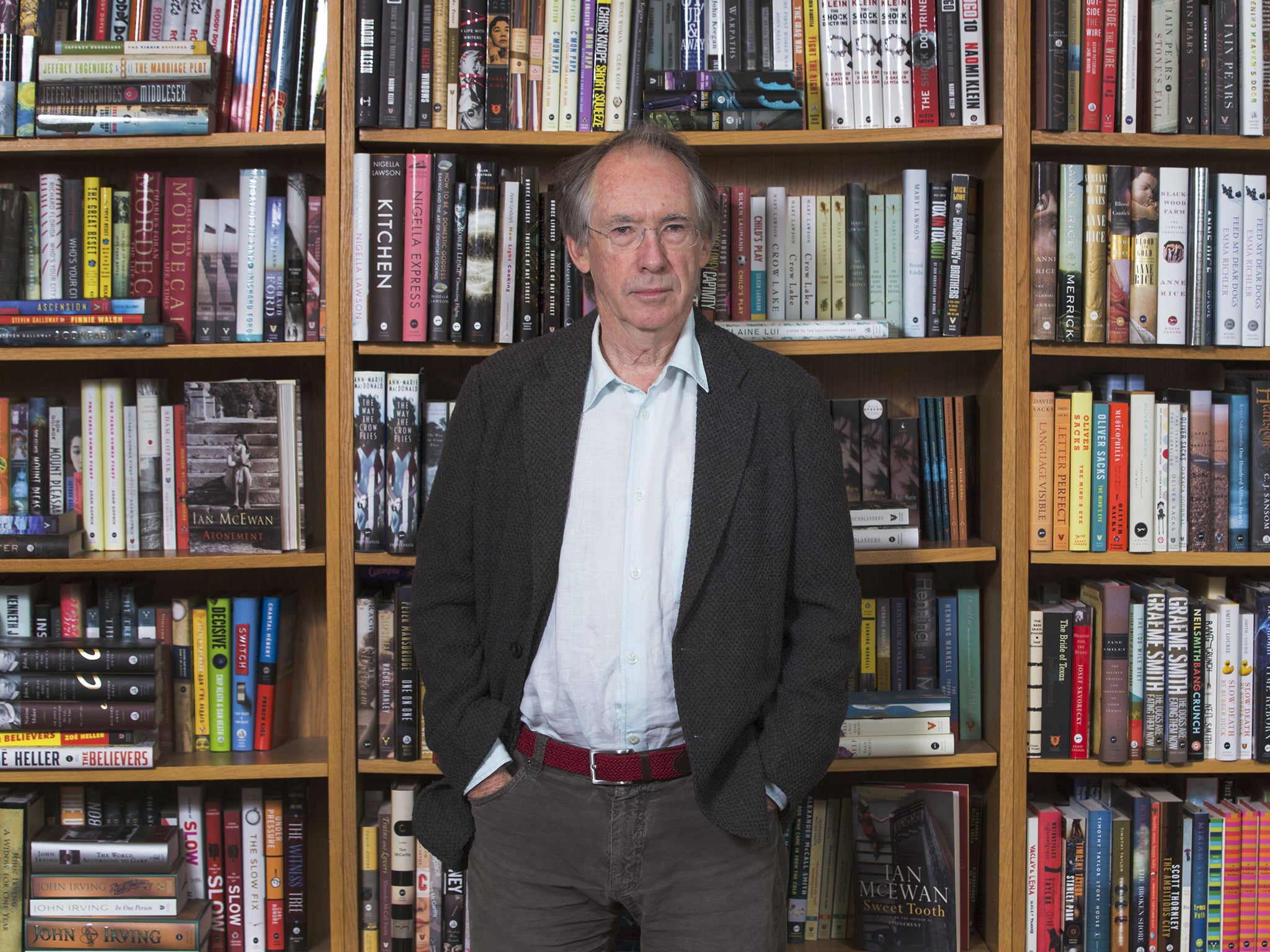Novella Award organisers have defined a novel as being a piece of fiction between 20,000 and 40,000 words
Hefty bestsellers are being eclipsed by lighter reading

Your support helps us to tell the story
From reproductive rights to climate change to Big Tech, The Independent is on the ground when the story is developing. Whether it's investigating the financials of Elon Musk's pro-Trump PAC or producing our latest documentary, 'The A Word', which shines a light on the American women fighting for reproductive rights, we know how important it is to parse out the facts from the messaging.
At such a critical moment in US history, we need reporters on the ground. Your donation allows us to keep sending journalists to speak to both sides of the story.
The Independent is trusted by Americans across the entire political spectrum. And unlike many other quality news outlets, we choose not to lock Americans out of our reporting and analysis with paywalls. We believe quality journalism should be available to everyone, paid for by those who can afford it.
Your support makes all the difference.At last, an answer to the question that has vexed readers, prize judges and literary agents since the dawn of literature: what is a novel? More specifically, an answer to the conundrum of what defines a novella: that is, it must be a work of fiction between 20,000 and 40,000 words in length, according to the organisers of a new prize.
The Novella Award is a partnership between the Screen School of Liverpool John Moores University and Manchester Metropolitan University’s Department of Contemporary Arts, which will reward the winning work with £1,000 and publication by the award-winning independent publisher Sandstone Press. On Friday it announced its 2015 shortlist, along with an explanation of its criteria for entry.
The word count is based on research by the prize director Robert Graham, who sized up various works of fiction that are generally accepted to be novellas, before settling on the Richard Ford solution. “When a writer approaches the 20,000-word mark,” Ford wrote in The Granta Book of the American Long Story, “he knows he’s edging out of the country of the short story; likewise when he passes the 40,000-word mark, he’s edging into the country of the novel.”
The formula will be controversial, not least because it suggests that some famous winners of novel prizes are not novels, after all. The Man Booker Prize, for instance, is awarded to “the best … eligible novel”, so there was some debate when it was won in 2011 by The Sense of an Ending by Julian Barnes, a “short novel” which contains, according to a Vintage publicist, 43,869 words, including the page numbers, titles and other bumf.
Ian McEwan, who was Booker-shortlisted in 2007 for the very slim On Chesil Beach, will also disagree. In 2012, he told the Cheltenham Literature Festival that a novella is a work of 25,000 words, though he did add that “the novella is the supreme literary form …. the prose is better, more condensed, more rigorous”. Even so, the Novella Award is the only prize that specifically rewards the novella.

The aim of the prize is to celebrate a literary form that contains such classics as Ernest Hemingway’s The Old Man and the Sea and Anthony Burgess’s A Clockwork Orange, and by encouraging shorter fiction it bucks the current trend for hefty novels. In 2013, the literary world was dominated by big novels, including Donna Tartt’s The Goldfinch, which runs to 880 pages in paperback, and the Man Booker winner The Luminaries (848) by Eleanor Catton. Recent changes for some authors who self-publish on Amazon, meaning that they will be paid for the number of pages read, have led to longer books. “The Americans especially love a really huge novel,” McEwan recently said. “I think they still pursue a notion of a great American novel, and it has to be a real brick of an object.”
Towards the shorter end of the fiction scale, nobody seems to agree about length. The Costa Short Story Award accepts stories of no longer than 4,000 words, while the Charleston-Chichester Award for a Lifetime’s Excellence in Short Fiction “just means ‘short stories’”, The Independent on Sunday is told, “and there’s no hard and fast rule as to precise length, just significantly shorter than a novel, or even novella”.
The shortest work of literature is attributed to Hemingway, who was reportedly bet that he couldn’t write a complete story in 10 words. He could do better than that, he countered, offering this: “For sale: baby shoes, never worn.”
The winner of the Novella Award will be announced on 7 October.
Join our commenting forum
Join thought-provoking conversations, follow other Independent readers and see their replies
Comments